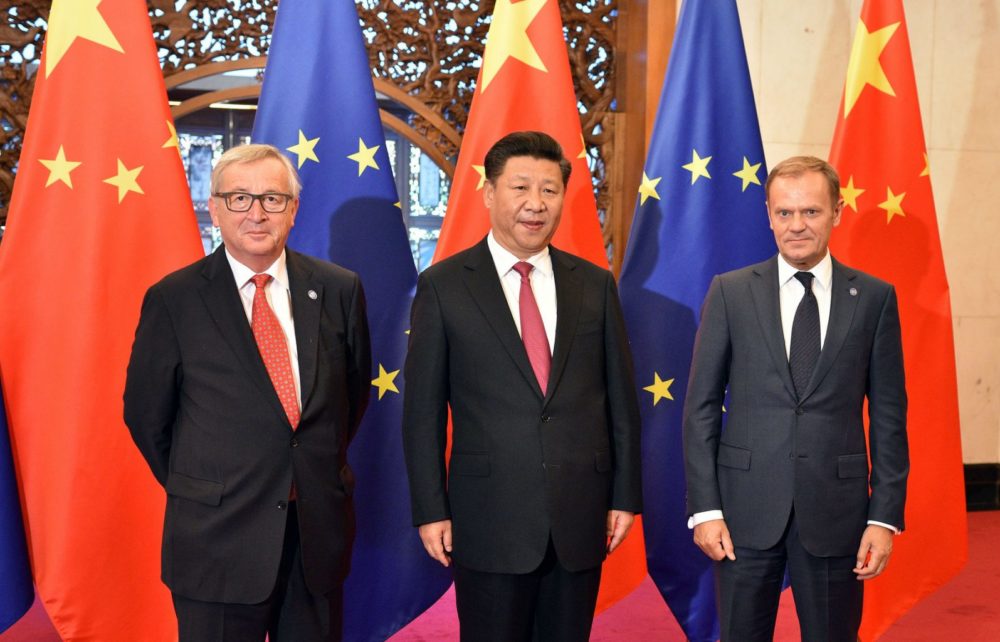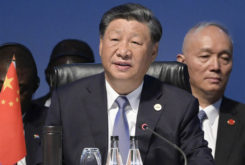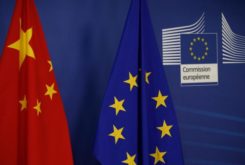Tensions between Chinese and European Union authorities in 2021 “forced Brussels and European capitals to confront the reality of interacting with a more assertive China”, according to MERICS.
At the end of a year when “tensions between the two actors ran unprecedently high and are likely to leave scars”, MERICS notes the emergence of four key trends that defined the EU’s China policy in 2021, the first one being that the EU sticks to its multifaceted approach on China, while building up a defensive toolbox.
Over the course of the year, some of the leading EU institutions reassessed the bloc’s China policy as defined in the 2019 EU-China Strategic Outlook. The European External Action Service reviewed the implementation of the Outlook’s goals in April and prepared input for an informal European Council discussion on China hosted by the Slovenian Presidency in October. Meanwhile, the European Parliament released a dedicated report on EU-China relations in September.
Breakthrough in China-European Union Comprehensive Agreement on Investment
“While each of the institutions emphasize different aspects of relations with China, they all agree that the multifaceted approach should remain the guiding framework for EU-China interactions. There is, however, also agreement that the EU needs more policy tools to address challenges posed by China in the realms of economic competition and systemic rivalry”, MERICS says. “A slow, but growing embrace of geopolitical thinking that bundles issues together in broader strategies is taking shape in Brussels. This is best exemplified by such initiatives as the Indo-Pacific Strategy and the Global Gateway, which both are interconnected with the EU’s China policy”, it adds.
A second trend identified is that Brussels’ priorities over China are further diverging: the European Parliament has been increasingly promoting a more critical and values-driven line on China in its resolutions and reports while also exploring ways to expand relations with Taiwan. In contrast, following the downturn in relations between Brussels and Beijing caused by limited direct interactions during the pandemic and the political fallout from the sanctions, the Commission and the Council seem inclined to “re-engage China” and bring positive economic and climate points back on the agenda.
“This divergence between the EU institutions could escalate further as some European politicians – including European Council President – explore options to reopen discussions on the Comprehensive Agreement on Investment (CAI), despite political gridlock created by sanctions remaining in place”, MERICS says.
China Promises ‘Door Will Continue to Open’ for European Companies
The third of the four new trends is that Beijing continues to maneuver between Brussels and national capitals: “the pandemic had already placed a strain on in-person exchanges between Beijing and Brussels. But following the exchange of sanctions between the EU and China in March, the relationship between the two has dramatically deteriorated. Beijing’s preference for bilateral engagement with European capitals is hardly a novelty of 2021. In fact, it has been a long-standing issue often lamented by Brussels as a divisive practice”, MERICS says.
“This year, China’s approach has continued along broadly the same lines: engage France, Germany and friendly EU countries”, it adds, considering that contacts in 2021 paved the way for the High-Level Strategic Dialogue between EU High Representative Josep Borrell and Wang Yi and plans for a potential EU-China summit before the end of the year or, more likely, beginning of next year.
The final trend is that US-China competition shapes Brussels’ relationship with China, according to the Berlin-based think tank. “Looking back at 2021, the EU has taken tremendous steps forward in shaping a clearer-eyed response to the challenges posed by China. The work is far from done, but the French Presidency of the Council is likely to reinforce efforts in this direction and put its weight behind strategic autonomy and strengthening partnerships in the Indo-Pacific. The new German government is proposing a more decisive positioning towards Beijing too, but whether the German strategic sovereignty aligns with the French idea of strategic autonomy remains unclear”, MERICS adds.




